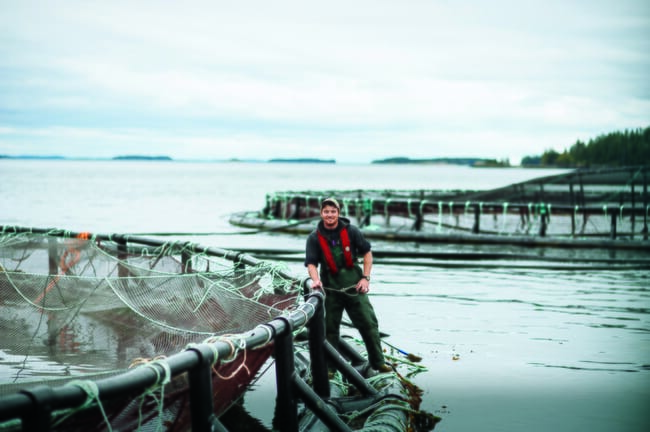“Documents show Mowi is planning to add 2.2 million additional salmon into its existing sea-cages on the south coast of Newfoundland,” said Dr Steve Sutton, ASF director of community engagement. “This means stocking more fish in the same area, even the same cages, affected by the recent mass mortality event, and doing so without any public environmental assessment.”

In July 2018, Northern Harvest Smolt Ltd, which is owned by Mowi, submitted a proposal to the Newfoundland and Labrador Department of Municipal Affairs and Environment to expand the Indian Head hatchery near Stephenville from an annual production capacity of 4.5 million to 6.7 million smolt. The stated purpose is to increase salmon production in the province. However, except for stating the fish would be stocked into existing cage sites, ASF say that the company did not include any details about the marine aspects of their expansion.
In response, ASF and others made formal submissions, asking the Minister to reject Mowi’s proposal and require the company to submit a new plan that includes a description of sea cages that will receive the additional smolt. In Newfoundland and Labrador, project components that are connected are required to be registered together for environmental assessment.
ASF requested that a new project description include information about the location, age, condition, performance, and existing environmental impacts of the marine sites involved. ASF also asked that a new submission include details about the procedures in place to prevent pollution, escapes, and sea-lice outbreaks, what infrastructure changes are necessary to accommodate the added fish, and what impacts are expected in the environment as a result of increased stocking density.
Regardless, in September 2018, the Indian Head hatchery expansion was given the green light by then Environment Minister Andrew Parsons. According to ASF, the company was not required to describe what would happen to their fish outside the hatchery and no public environmental assessment was conducted.
In April 2019, six applicants, not including ASF, filed for judicial review in the Supreme Court of Newfoundland and Labrador. Represented by Ecojustice, the applicants are asking the court to set aside the provincial environment minister’s decision and order Mowi to resubmit a project description that includes the marine aspects of their expansion.
“There are so many similarities between the facts of the Mowi case and the Grieg case in Placentia Bay,” said Steve Sutton, referring to ASF’s successful court challenge of the Placentia Bay aquaculture project which led to a full environmental assessment.
“In the Grieg case it was a requirement for the hatchery and sea cages to be described together, and despite the repeated efforts of the provincial government to avoid a full environmental assessment, the court ordered it, calling it nothing less than ‘a duty owed to the people of the province,’” said Sutton.
According to ASF, “given the recent mass mortality event and Mowi’s admission that the existing sea cages are obsolete and contributed to the die-off, it is unconscionable that the government and Mowi will go to court and use public money in defense of the Minister’s decision to allow increased stocking of these cages without any environmental assessment.”
ASF Minister Bragg and Mowi to “press reset” on the environmental assessment of this planned expansion before a court hearing scheduled for 6 November, in order to save court time and resources, “while giving the company an opportunity to demonstrate publicly that their plan won’t result in unacceptable harm to the environment”.



